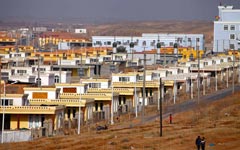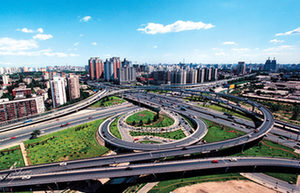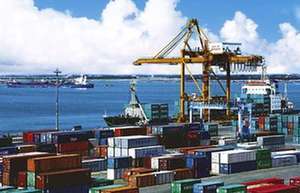Louis Kuijs, chief economist of Greater China Markets, Royal Bank of Scotland, who is based in Hong Kong, is one who does not believe that China is heading for a macroeconomic crisis and questions whether some of the investment in infrastructure is as inefficient as has been suggested.
"If you take a train in China you don't feel as though the railways are a waste of money. They are fairly well-run systems and people are using them massively. I am a little bit more sanguine than others about the way investment has been allocated over the past 15 years."
 New urbanization planambitious: Analysts
|
 |
Kuijs says that unlike some other economies, China's has a greater capacity to take on debt because of the high level of savings, which means that the high levels of investment can be financed domestically without seeking external help.
"I would caution against this view that it cannot be sustained because all the growth has been financed domestically and there has been no reliance on foreign money.
"If you have a system where you can keep your consumption to GDP ratio low without having a social crisis, just from the hard-nosed financial economic perspective you have an enormous amount of leeway about what you do."
Marie Owens Thomsen, senior economist and strategist at Credit Agricole Suisse Private Banking, based in Zurich, says she is "mystified" by the debate on China needing to reduce investment.
"I took a break from the investment markets. Before I went away, everyone was saying that Chinese growth depended on exports. When I came back the worry was about investment. From my point of view we get this whole phenomenon where the markets tend to focus on the wrong thing.
"The two main drivers of Chinese growth are now investment and private consumption. Now why would you want to reduce investment if it was one of the main contributors to growth?"
She, too, is not concerned by China's growing debt to GDP ratio.
"I don't need to be flippant but China has the money to bail everybody out should they need to with their massive foreign exchange rate reserves. It might be better for everyone if they had less debt but I can't see they would have any problem paying it back."
Goolam Ballin, chief economist and head of research for the Standard Bank Group, in Johannesburg, is concerned about China's growing debt causing a slowdown and its effect on commodity-producing nations in Africa
"If China's growth was to slow to 5 percent and not anything like 2 percent or going into recession, it would be tantamount to spawning a commodities recession that would impact emerging markets, particularly Africa, in a pretty pronounced way."
He believes the economy has already made moves to reform and does not anticipate a sudden collapse in growth.
|
 |
 |
